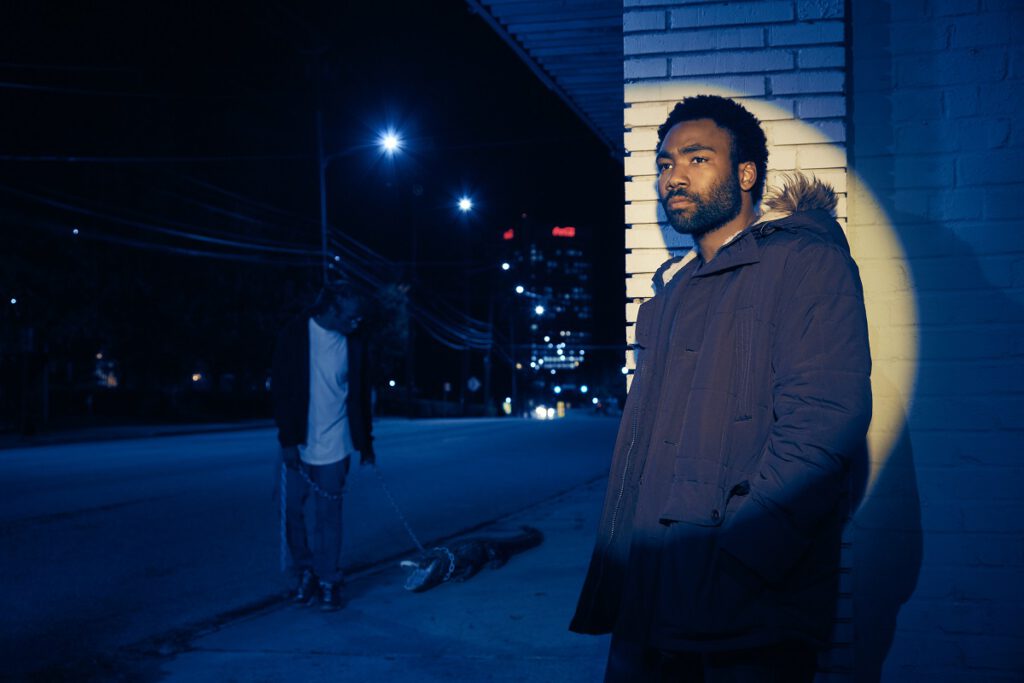Even in the era of Peak TV, great shows are typically built on familiar templates. From the ensemble comedy to the antihero drama, we have a shorthand that comes from their commonality. So when we see something that truly shatters this template system, it can be breathtaking. This is one of the reasons so many critics lost their minds over “Twin Peaks: The Return” last year. Even critics had to admit it was like nothing else on television. It’s one of the reasons that passion around NBC’s “The Good Place” builds with every episode—because it feels so fresh and new. Even as television has risen to a place where it’s often compared to film in terms of quality, the greatest hits and critical darlings come largely from a two-party system of ‘comedy’ and ‘drama.’ When we see something that’s almost undefinable and feels like the product of a daring, uncompromised voice, it stands out. Such is the case with Donald Glover’s “Atlanta,” arguably the best show of 2016, finally returning for another year with the subtitle “Robbin’ Season.” It will again be on every worthwhile list of the best shows of the year.

The first season of “Atlanta” was clearly a breakthrough event, but “Robbin’ Season” feels like the product of a creative voice being given even more freedom than he had before. As you might expect from the man who turned Childish Gambino from a quick-talking rapper into a ‘70s funk crooner on his last album, “Atlanta” swerves a bit in season two. You had to know he wasn’t just going to do the same thing with his collaborators, and yet the foundation of “Atlanta” is still familiar. It’s just a little weirder, a little crazier, and a little less predictable. Who else would open their first episode in 16 months with an armed robbery featuring characters we’ve never seen before? As Darius (Lakeith Stanfield) says, it’s “robbin’ season,” a time of year when people get desperate and kind of lose their minds. “Everybody gotta eat.”
It’s easy to see even in just three episodes why that is the subtitle for this season of “Atlanta.” Don’t worry. It’s not a year about Earn Marks (Glover), his cousin Alfred Miles aka Paper Boi (Brian Tyree Henry), and Darius holding up a bank. It’s more the idea of that concept of a thin line between sanity and, well, something else. As he did in the first season, Glover is exploring racial and class tension through an often-funny filter. We get an episode in which Miles is wooed by (mostly white) marketing people trying to get him to a bigger audience that he’s not sure he wants and another in which Earn finally gets some money but can’t change his bad (and often racist) luck. The movie theater box office won’t take his $100 bill and wants to take a photocopy of his drivers license to take his credit card. And don’t get ahead of what happens at the strip club when Earn has some cash. It’s the third episode, “Money Bag Shawty,” and it’s a mini-masterpiece.

One thing that feels so incredible about “Atlanta” is how each episode plays like a short film that stands on its own as a fascinating piece of art but also connects with the other chapters. Glover and his team walk that fine line in which you can never be sure if an episode is going to completely stand alone as its own experience or progress a plot line started in another. That very sense of unpredictability is rare, and it’s reminiscent of FX’s “Louie,” another show that allowed its creator rarely-seen freedom. Even within episodes, “Atlanta” allows for unexpected diversions—such as an amazing bit in episode one with an alligator and Katt Williams—but never feels self-indulgent in that respect.
What I find most remarkable about “Atlanta” is the tonal balance and the confidence, something Glover has always displayed as an artist. Earn Marks may not be that confident in his life, but it takes an amazingly assured creative voice to calibrate comedy, drama, and social satire to such perfect degrees on shows like this one. In just three episodes, there is a typical season’s worth of character, commentary, and humor. I can’t wait to see more.












